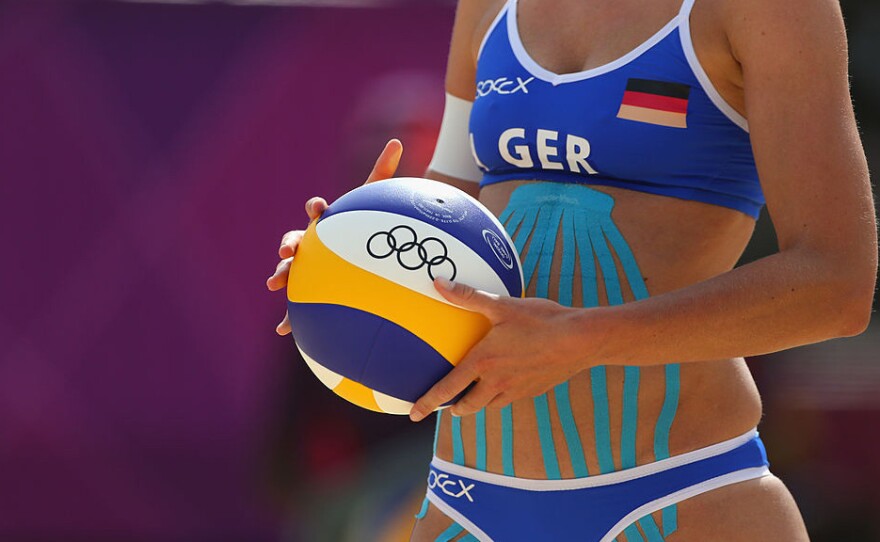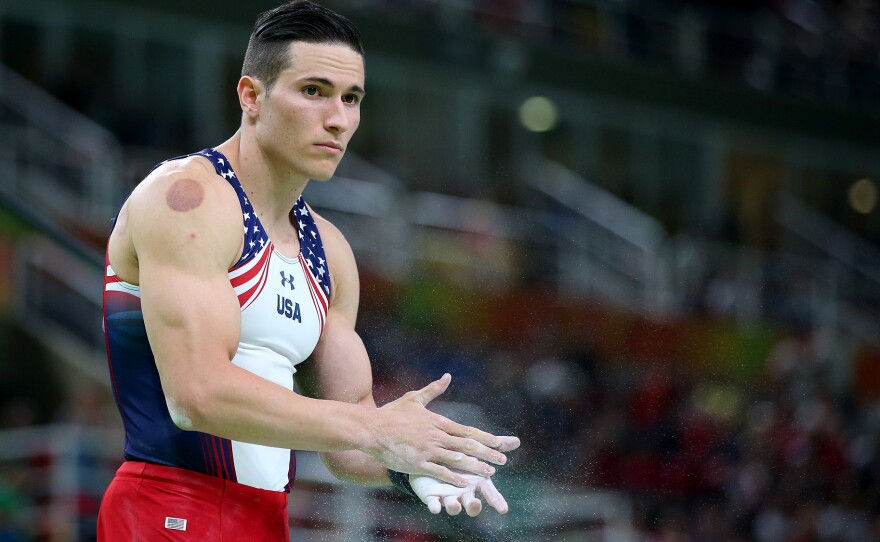
Olympic medals are won by margins of tenths or even hundredths of a second. So, it's no surprise that athletes want any edge they can get — even methods not backed by a lot of scientific evidence.
The alternative practice du jour in Rio, so far, has been cupping. In years past it was special, stretchy tape, said to support sore muscles and improve range of motion. And dietary supplements are an ever-popular option.
Like every other treatment or intervention, though, these purported performance-enhancers are subject to the placebo effect — benefits due to the recipient's belief in a treatment. Not only can placebos improve medical indicators, like pain in people who are sick, they can help athletes go faster, higher and stronger.
"The idea that the placebo effect is manifest in sports performance should not be any surprise at all," says Chris Beedie, a reader in Applied Sport and Exercise Science at Canterbury Christ Church University in the U.K. Even very powerful drugs like morphine work better in people who know they're taking them rather than those who don't, he says. So in the case of illicit drugs like EPO, banned for use in athletes, there's likely some small incremental placebo boost on top of the very real physiological effects.
On the other end of the spectrum, he says, are treatments whose benefits are likely to be entirely or almost entirely due to the placebo effect.
Caffeine falls in the middle of that spectrum — proven to be helpful, but also subject to an extra boost that's based on the belief that it is helpful.
For example, in one small study Beedie and his colleagues published in 2006, cyclists who were told they'd received large doses of caffeine generated a bigger increase in power (relative to their baseline performance) than cyclists who thought they'd received small doses. And those who were told they got a placebo did worse than they did in a baseline test. In fact, none of the cyclists in the study had been given caffeine.
On average, Beedie says, the performance boost from a placebo is in the 2 to 3 percent range. But he cautions that the response will vary depending, on the context. For example, a placebo is likely to work better if you know and trust the person who recommends it.
It's not clear how placebos improve performance. It might be that they reduce anxiety, which decreases muscle tension and makes movements more efficient and fluid, Beedie says. Or they could reduce perceived pain or effort.
They may simply motivate you to push yourself more, though Beedie says his lab research has found that indicators of effort — like heart rate — don't go up the way you might expect if the person taking the placebo were working harder.
What's particularly interesting about cupping, he says, is that because it leaves visible signs, it might also put a damper on the performance of competitors who see the marks and suddenly feel they're at a disadvantage.
"I don't know who the first person was to pull off their sweats and show a red blotch, but the race is so often won or lost in that pre-event time," Beedie says, when everyone is focusing and psyching each other out. (Just look at what went on in the ready room before the swimming semifinal featuring rivals Michael Phelps and South Africa's Chad le Clos, when Le Clos' "get loose" dance provoked a steady scowl from Phelps.)
"It's a fantastic example of how sport, despite all the science and technology, is still at heart a very ritualistic thing," says Beedie.
So assuming that a treatment has no proof of actual benefit but isn't likely to hurt an athlete, is there anything wrong with benefiting from the placebo effect?
For individual competitors, maybe not, says Timothy Caulfield, a professor in the faculty of law and school of public health at the University of Alberta and the author of Is Gwyneth Paltrow Wrong About Everything? When Celebrity Culture and Science Clash. He recently compiled a list of performance aids that, though popular, have little or no evidence to back up their use.
Caulfield says he is concerned that seeing big-name Olympians advocating unproven treatments "has the potential to legitimize the pseudoscience." And that could influence how we mortals spend our limited resources – pushing us to buy things that aren't actually helping us solve our own problems.
Katherine Hobson is a freelance health and science writer based in Brooklyn, N.Y. She's on Twitter: @katherinehobson
Copyright 2016 NPR. To see more, visit http://www.npr.org/.






